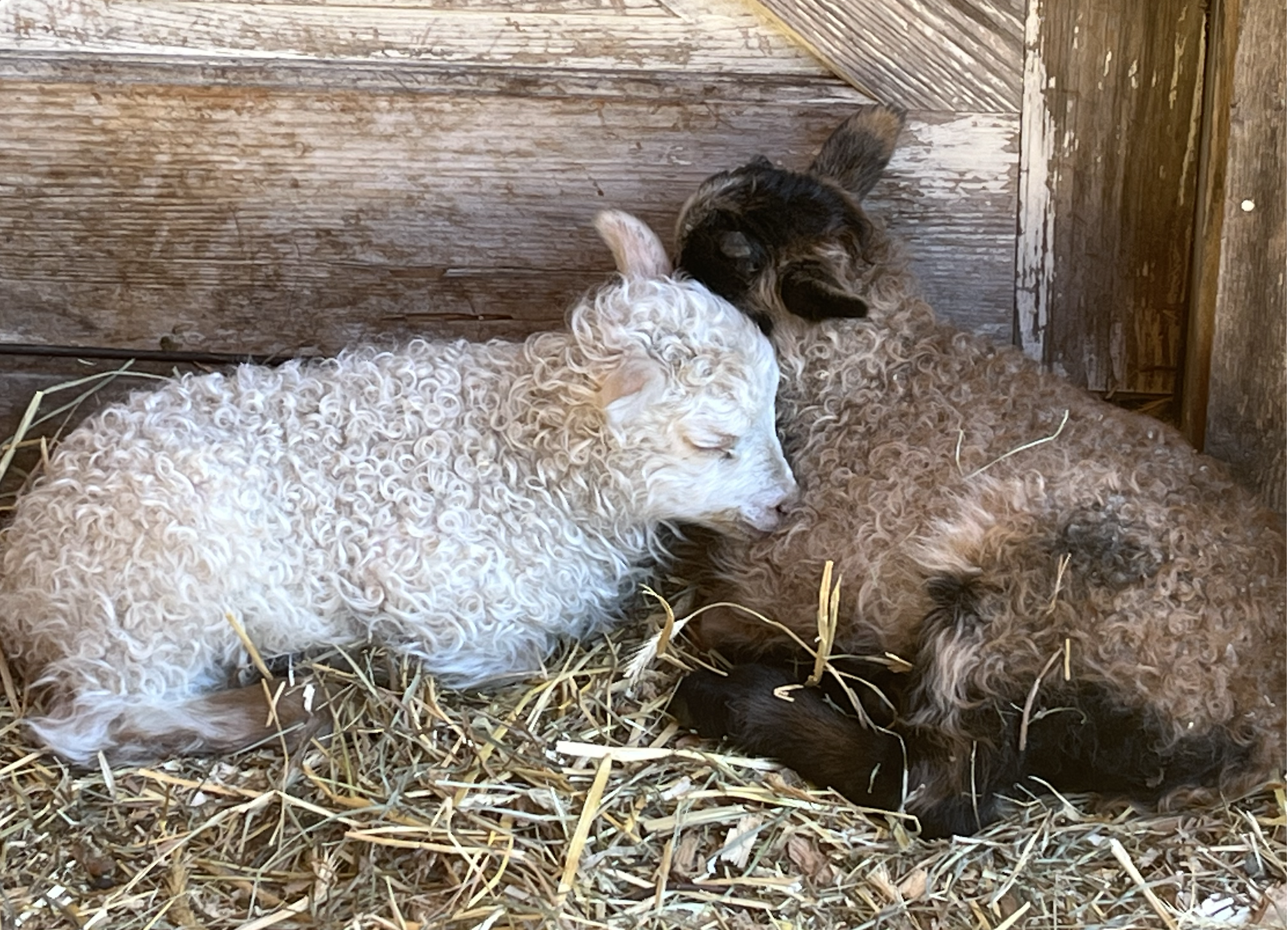ICELANDIC SHEEP
At Spencer Brook Farm, we raise Icelandic sheep which are a hardy, triple-purpose primitive breed, valued for their rich wool, lean and flavorful meat, and milk. Originating from Iceland over 1,100 years ago, they are well-suited to New England’s changing seasons and terrain. Their natural foraging instincts, strong maternal traits, and winter-hardiness make them an ideal fit for our small-scale, pasture-based system.
When we first arrived, the forage quality and soil health was quite poor because the farm had been vacant for several years. The sheep were part of our land management strategy to improve the pastures through rotational grazing. Rather than allowing the flock to graze freely over the entire pasture, we divide our fields into smaller paddocks and move the sheep regularly; sometimes daily depending on the quality of forage in a particular paddock. We do utilize a dry lot area in our barnyard that is free of grass, therefore eliminating the opportunity to consume grass-dwelling parasite larvae. This holding area is layered with biochar and wood chips and inoculated with healthy lactobacillus bacteria to provide the flock a clean, safe area to retreat to if severe weather hits or we simply need to allow more time for the next paddock to rest and regrow before being grazed again.
Moving the sheep frequently prevents overgrazing and soil erosion, builds organic matter in the soil, encourages a diversity of grasses and plants, reduces parasite and disease pressure in the flock, and more closely mimics natural grazing patterns of wild herbivores. This approach will create a more resilient, self-renewing system. The sheep fertilize the land as they graze, and their movement supports the natural rhythms of pasture health and regeneration.
Our Icelandic sheep are part of a larger vision in which animal welfare, soil health, and ecological sustainability all work together. We have already seen some improvement in our pasture and hope to see more dramatic change over time. We are new to raising sheep and rotational grazing and have much to learn, but we look forward to sharing our experience and lessons learned as we go.


